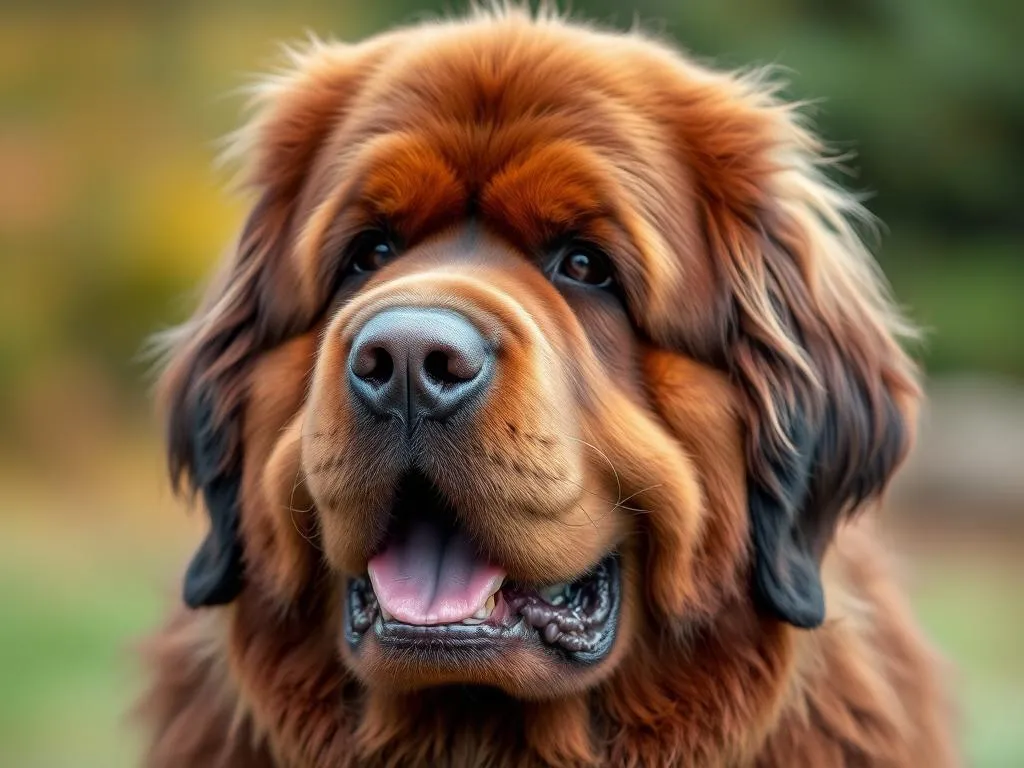
Introduction
The world of dog breeds is as diverse as it is fascinating. From the tiny Chihuahua to the majestic Great Dane, each breed has its own unique characteristics, traits, and histories that make them special companions to humans. Among these breeds, the brown Newfoundland dog stands out not just for its striking appearance but also for its gentle nature and impressive abilities.
Choosing the right breed is crucial for ensuring a harmonious relationship between you and your canine companion. Factors such as lifestyle, living situation, and personal preferences play a significant role in this decision. Understanding different dog breeds helps potential pet owners make informed choices that align with their needs and expectations.
Overview of Dog Breeds
Definition of Dog Breeds
A dog breed is a specific genetic lineage within the domestic dog species, Canis lupus familiaris, that shares particular physical and behavioral traits. Dog breeding has a long history, dating back thousands of years when humans began selectively breeding dogs for specific purposes such as hunting, herding, guarding, and companionship. This process has led to the creation of the thousands of breeds we see today.
Classification of Dog Breeds
Dog breeds are generally classified into several primary categories based on their original purpose and traits. Here’s a brief overview of these classifications:
-
Working Dogs: Bred for various tasks such as guarding, pulling sleds, and search and rescue. Examples include the brown Newfoundland dog, Rottweiler, and Siberian Husky.
-
Herding Dogs: Developed to help with livestock management. Breeds include the Border Collie and Australian Shepherd.
-
Sporting Dogs: These dogs are used for hunting and retrieving game. Examples are the Labrador Retriever and Golden Retriever.
-
Hound Dogs: Known for their keen sense of smell and tracking ability, breeds in this category include Beagles and Bloodhounds.
-
Toy Dogs: Small in size and often kept for companionship. Notable breeds include the Pomeranian and Yorkshire Terrier.
-
Terriers: Bred for hunting and pest control, these feisty dogs include the Jack Russell Terrier and Bull Terrier.
-
Non-Sporting Dogs: A diverse group that doesn’t fit into the other categories, including breeds like the Bulldog and Dalmatian.
Brown Newfoundland Dog
Breed History
The brown Newfoundland dog has its roots in Newfoundland, Canada. This breed was originally developed by fishermen to assist with water rescues and to pull nets from the sea. Their innate swimming ability and strong, muscular build made them essential companions for maritime tasks. The brown variant of the Newfoundland breed emerged through selective breeding practices that favored the gene responsible for the brown coat, which is recognized alongside the traditional black and Landseer colors.
Physical Characteristics
Brown Newfoundlands are large, powerful dogs known for their impressive stature. On average, they weigh between 100 and 150 pounds and stand about 26 to 28 inches tall at the shoulder. Their build is robust, with a broad head, a thick neck, and strong limbs.
Distinctive features of the brown Newfoundland dog include:
– A dense, water-resistant double coat that is soft to the touch.
– A characteristic webbed foot structure that aids in swimming.
– A gentle expression that reflects their friendly demeanor.
Temperament and Behavior
The brown Newfoundland dog is renowned for its calm and gentle temperament. These dogs are known to be excellent family pets, particularly suited for households with children due to their patient and loving nature. They are also intelligent and eager to please, making them capable working dogs and excellent candidates for service roles, including therapy and assistance dogs.
While typically friendly, early socialization is crucial to ensure they grow up to be well-adjusted adults. Newfoundlands can be somewhat reserved with strangers but are usually not aggressive.
Health Considerations
Like many large breeds, brown Newfoundlands are prone to certain health issues. Common concerns include hip dysplasia, elbow dysplasia, and certain heart conditions, including dilated cardiomyopathy. Their lifespan typically ranges from 8 to 10 years, and regular veterinary check-ups, a balanced diet, and preventive care can help mitigate health risks.
Maintaining a healthy weight is particularly important due to their predisposition to joint issues.
Caring for a Brown Newfoundland Dog
Dietary Needs
Proper nutrition is vital for the health and well-being of your brown Newfoundland dog. A high-quality, well-balanced diet that meets their specific needs is essential. Look for dog food that lists meat as the first ingredient and is formulated for large breeds to ensure they receive the appropriate nutrients.
It’s advisable to feed them two to three meals a day to prevent bloat, a serious condition that larger breeds can be susceptible to. Always consult your veterinarian for personalized dietary recommendations.
Exercise Requirements
Despite their large size, brown Newfoundlands are relatively low-energy dogs. However, they still require regular exercise to maintain a healthy weight and prevent behavioral issues. Daily walks, swimming sessions, and playtime in a secure yard can help meet their exercise needs.
Engaging them in activities that challenge their minds, such as obedience training or agility exercises, can also be beneficial. Regular physical activity not only keeps them fit but also enhances their overall quality of life.
Grooming and Maintenance
The grooming needs of a brown Newfoundland dog are moderate to high due to their thick double coat. Regular brushing is essential to prevent matting and to manage shedding, especially during seasonal changes. A good grooming routine includes:
- Brushing at least once a week to remove loose hair and dirt.
- Bathing as needed, but not too frequently, as over-bathing can strip their coat of essential oils.
- Regular nail trimming and ear cleaning to maintain overall hygiene.
During shedding seasons, more frequent grooming may be necessary to keep their coat healthy and free of tangles.
Training and Socialization
Basic Obedience Training
Training a brown Newfoundland dog should start early, as these intelligent dogs are eager to learn. Basic obedience commands such as sit, stay, and come are essential for their safety and well-being. Positive reinforcement techniques, including treats and praise, work best for motivating them.
Consistency and patience are key in training. Because they are large dogs, it’s important to establish good manners from an early age to prevent any potential issues as they grow.
Socialization Techniques
Socialization is crucial for a brown Newfoundland dog to develop into a well-rounded pet. Early exposure to various environments, people, and other animals helps reduce anxiety and potential aggressive tendencies.
Consider enrolling your dog in puppy classes or setting up playdates with other friendly dogs. Regular outings to parks or pet-friendly events can also provide valuable social experiences.
Choosing a Brown Newfoundland Dog
Finding a Reputable Breeder
When looking for a brown Newfoundland dog, it’s essential to find a responsible breeder who prioritizes the health and temperament of their dogs. Here are some tips for selecting a reputable breeder:
- Research breeders and ask for recommendations from local breed clubs or veterinarians.
- Visit the breeder’s facility to observe the living conditions of the dogs.
- Ask to see health clearances for the puppy’s parents, particularly for common breed-specific issues.
Beware of breeders who prioritize profit over the well-being of their dogs, as unethical practices can lead to health and behavioral problems in the puppies.
Adoption Options
Adoption is another great option for bringing a brown Newfoundland dog into your home. Many rescue organizations and shelters have Newfoundlands in need of loving homes. Adopting a dog can be incredibly rewarding, as it gives a second chance to a pet in need.
Before adopting, consider the temperament and background of the dog to ensure it aligns with your lifestyle. Adopting from a rescue often includes valuable information about the dog’s history and behavior, which can be advantageous for new owners.
Lifestyle Considerations
Living Environment
While brown Newfoundland dogs can adapt to various living situations, they do best in homes with ample space. A large yard is ideal for them to exercise and play, although they can also thrive in apartments if given enough daily exercise.
Keep in mind that their thick coat makes them more comfortable in cooler climates. If you live in a warmer area, ensure they have access to shade and water, as they can be susceptible to overheating.
Compatibility with Families
The brown Newfoundland dog is known for its gentle nature, making it an excellent choice for families, especially those with children. Their patient demeanor and protective instincts often make them natural babysitters.
They can also coexist peacefully with other pets when properly socialized. However, their large size and playful nature mean supervision is necessary during playtime with smaller animals or young children.
Conclusion
In summary, the brown Newfoundland dog is a remarkable breed that combines beauty, intelligence, and a gentle temperament. Their rich history, along with their unique physical and behavioral traits, makes them a beloved choice among dog lovers.
Owning a dog, especially a breed like the brown Newfoundland, comes with its joys and responsibilities. It’s important to consider your lifestyle and environment when making this decision. With proper care, training, and socialization, a brown Newfoundland can be a loyal companion for many years.
By understanding the needs and characteristics of this breed, you can ensure a fulfilling and happy relationship with your furry friend. Whether you choose to adopt or purchase from a reputable breeder, the bond you form with your brown Newfoundland dog will undoubtedly be rewarding.









